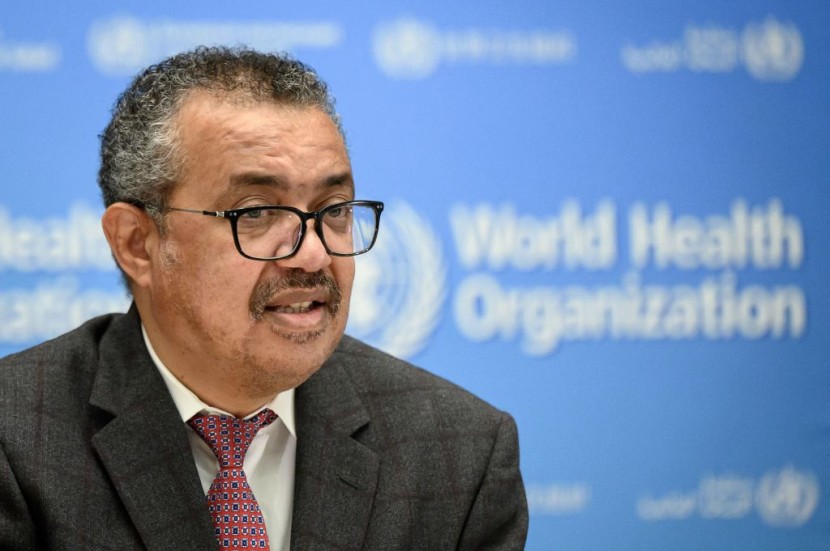
On Monday, the World Health Organization said that COVID-19 is still a public health emergency but that the pandemic has reached a "transition point."
According to WHO, its International Health Regulations Emergency Committee convened on Friday to evaluate pandemic data.
COVID-19 Pandemic Remains a Threat
WHO Director-General Dr. Tedros Adhanom Ghebreyesus "acknowledges the Committee's view that the COVID-19 pandemic is likely in a transitional period" and "appreciates the Committee's advice to navigate this transition carefully and mitigate potential negative consequences," according to the statement.
The WHO issued a copy of Tedros's statement during the conference, in which he stated that there is still a danger of worldwide COVID-19 transmission, indicating that the virus is still designated as a Public Health Emergency of International Concern.
However, according to ABC News, he stated that the world has never been in a better position - thanks to diagnostics, vaccinations, and treatments - to defeat COVID-19. Dr. John Brownstein, an epidemiologist, and chief innovation officer at Boston Children's Hospital, stated that the WHO's statements indicate that the agency is aware that the public health emergency is waning but that the threat of the virus persists.
He stated that the risk of COVID is still quite substantial, with twice as many fatalities from COVID as from influenza. During the WHO summit, Tedros recommended that those with a higher risk of severe sickness and mortality, such as immunocompromised and elderly individuals, be completely immunized and revaccinated.
He also urged other nations to increase testing and administer antivirals early on to people who tested positive for COVID-19. Tedros has stated that the end of the pandemic is near, despite WHO's assertion that it is still ongoing.
Read Also : Vladimir Putin Threatened Boris Johnson
WHO Encourages to Continue Vaccinating People
The organization's committee on the pandemic's emergency status encouraged WHO to "create a proposal for alternate means to sustain the global and national emphasis on COVID-19 after the [international public health emergency of concern] has ended."
According to US News, WHO does not determine whether or not an outbreak constitutes a pandemic. Instead, it determines whether occurrences constitute a public health emergency of worldwide significance, as it did in January 2020 for COVID-19.
Tedros stated in a list of temporary recommendations that countries should continue vaccinating people and incorporate COVID-19 vaccines into routine care; improve disease surveillance; maintain a robust health care system to avoid a "panic-neglect cycle"; continue to combat misinformation; and adjust international travel measures based on risk assessment.
In January 2020, the organization proclaimed the coronavirus pandemic to be a PHEIC around six weeks before it was labeled a pandemic. According to CNN, PHEIC establishes an agreement amongst nations to adhere to the WHO's recommendations for emergency management.
Each country, in turn, announces its public health emergency; these announcements are legally binding. To alleviate a crisis, countries use them to pool resources and suspend norms. In addition, the United States remains under its own public health emergency proclamation, reaffirmed on January 11 by Health and Human Services Secretary Xavier Becerra.
In the past eight weeks, more than 170,000 people have died from COVID-19, Tedros stated when announcing the committee meeting last week. Although the world is better equipped to manage the pandemic than it was three years ago, Tedros remains "very concerned by the situation in many countries and the rising number of deaths."
According to research from Johns Hopkins University, while the worldwide death toll from COVID-19 is on the rise, the average number of deaths per week is much fewer than at earlier stages of the pandemic.
Before this week's committee meeting, Tedros urged nations to continue to combat the COVID-19 virus. Also on Monday, the International Federation of Red Cross and Red Crescent Societies issued two new assessments that warned: "no country is adequately prepared for future pandemics."
The COVID-19 outbreak is a "wake-up call," according to IFRC Secretary General Jagan Chapagain. According to the findings, many of the effects of the COVID-19 crisis, including unemployment and poverty, learning loss, food insecurity, and an increase in mental health disorders, might have been prevented if governments had invested in disaster planning.
They advise nations to prepare for concurrent threats such as disease outbreaks and harsh weather disasters.
Related Article : COVID-19 is Leading Cause of Child Deaths
@YouTube
© 2026 HNGN, All rights reserved. Do not reproduce without permission.








